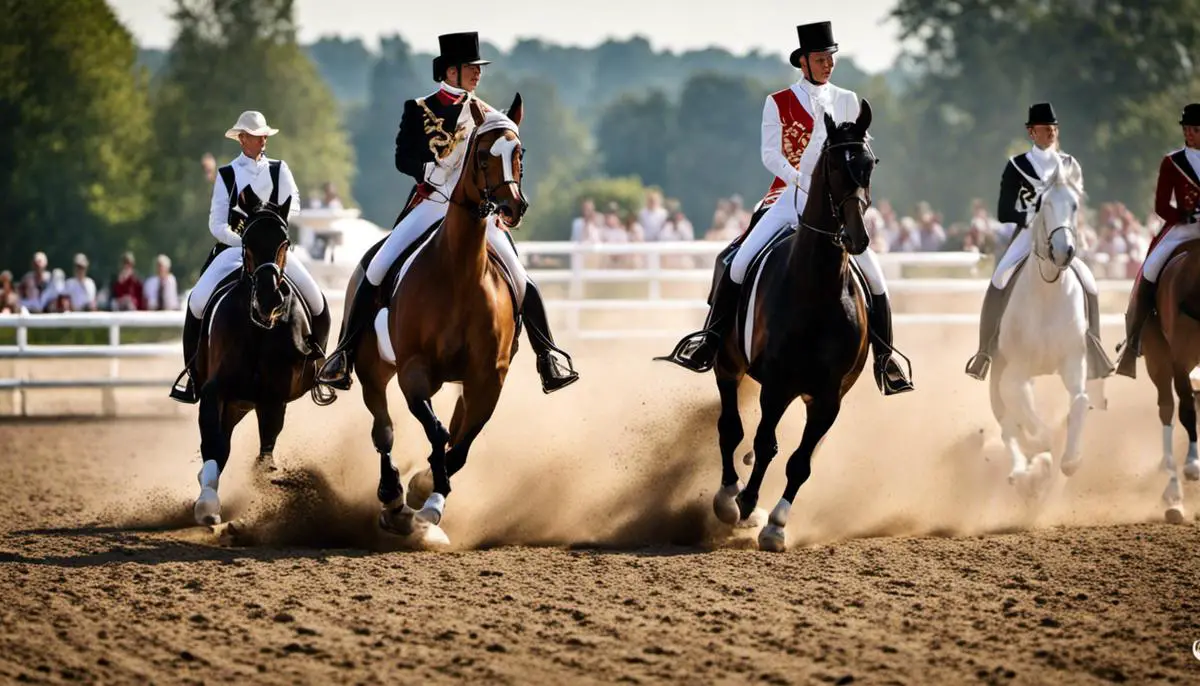Delving deeply into Germany’s cultural roots unveils the richness of its equestrian traditions, an intricate blend of historic practices, innovative techniques, renowned personalities, and institutions, each leaving a unique hoof print on this intricate mosaic. Equestrianism is not merely a sport or a leisure activity within the borders of this European nation – it is a testament to Germany’s historical journey and a forge of indelible international influence. From knights and war horses marching through medieval times to present-day Olympic champions gracefully guiding their mounts, German equestrian traditions serve as a vivid conduit from the past to the present, setting the pace for future strides.
Table of Contents (Horspedia)
The Origins of German Equestrian Traditions
The Middle Ages and Equestrianism
The genesis of German equestrian traditions can be traced back to the Middle Ages, an era when chivalry and knighthood were of paramount importance. Horses were not only esteemed as a mode of transport but also integral to warfare and knightly tournaments. These tournaments, initially martial training events for knights, evolved into a kind of spectator sport, with jousting and melee games becoming a representation of knights’ valor and skill. The Middle Ages’ importance in shaping equestrian traditions in Germany is therefore undeniable, as breathing life into historical tales of Arthurian knights and charismatic cavaliers, seemingly sprung from the pages of a chivalric romance.
Equestrianism in the Modern Era
Fast forward a few centuries, the late-modern era marked the start of a transformation in German equestrian traditions. As horses became less crucial in warfare with the advent of mechanization, they gradually took on a more recreational role, showing up in places like sports, arts, travel, and therapy. Significant advancements in transportation technology also lead to a decrease in horses as a means of transport, thus driving their value towards aspects such as leisure, sport, and companionship.
The Equestrian Tradition and its Rules
With the establishment of the German Equestrian Federation or Deutscher Olympiade-Komitee for Reiterei (DOKR) in the 19th century, the equestrian sports landscape was further structured. The federation, which is the national governing body for all horse-related sports in Germany, established rules and regulations to ensure the welfare of the horses and fairness of the games. The German training system was also developed, which lays out a systematic approach to training horses based on classical principles of respect for the horse, systematic gymnastic training, and a focus on producing well-rounded horses and riders.
Dressage: A Pride of Germany
Germany is particularly known for its tradition in dressage, a highly skilled form of riding performed in exhibition and competition. With origins in the Renaissance, when agility and control were essential in battle, dressage was transformed over the centuries into an art, a dance partnership between horse and rider. The sport places emphasis on harmony and precision, and German riders have historically excelled in dressage international competitions, with many German riders holding titles in the Olympic Games, World Equestrian Games, and European Championships.
The Horse Breeding Tradition in Germany
Horse breeding has also been an integral part of German equestrian traditions. The country has a long history of breeding high-quality horses, with some of the world’s most respected horse breeds, such as Holsteiners, Hanoverians and Oldenburgs, originating from Germany. The breeds known for their power, precision, and versatility are often seen in top-level international competitions. The success lies in the meticulous breeding practices, including rigorous mare and stallion testing and selection, and the promotion of best breeding and training practices.
Horses in German Cultural Heritage
In Germany, a deep passion for horses is woven into the cultural fabric. This is evidenced by the multiple annual festivals and events that celebrate this relationship. For instance, the Bavarian Maifest, a significant equestrian event, is known for its vibrant parades featuring beautifully adorned horses. Equally, the German Equestrian Federation underscores the importance of nurturing the future generation through its annual event, the Bundeschampionate – a championship for young German horses. Dating back to the days of medieval knighthood up until contemporary times, the role of horses and equestrian practices has consistently evolved, yet remained distinctly prominent in German culture.
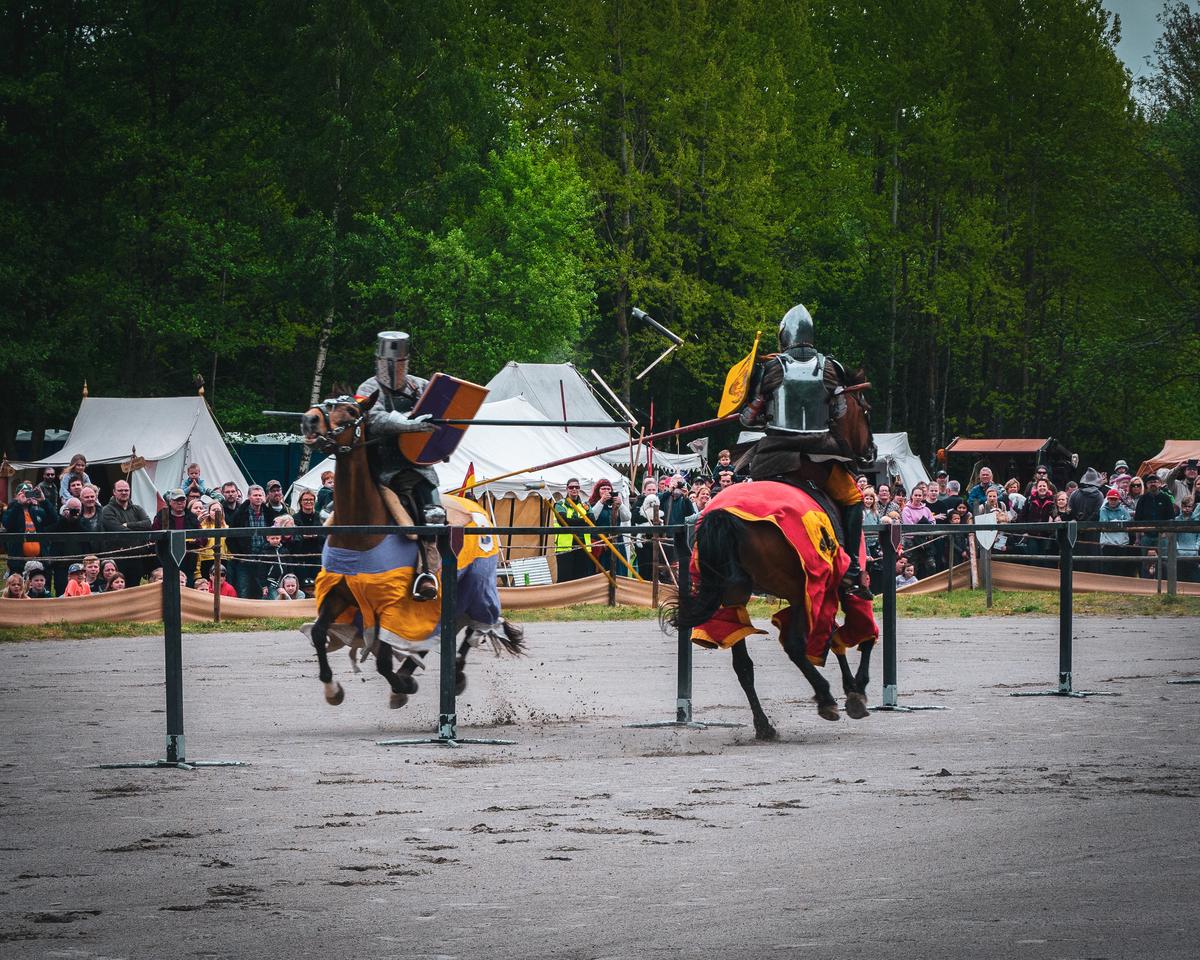
Notable Equestrian Practices and Techniques
Classical Dressage: An Important Aspect of German Equestrian Tradition
A key facet of the German equestrian tradition is centered around achieving harmony between the horse and rider – a goal realized through empathetic communication and mutual understanding. At the heart of this concept is classical dressage, a meticulous tradition characterized by a series of coordinated maneuvers driven by the rider’s subtle cues. Originating during the Renaissance as a result of the military’s need for disciplined horses, German classical dressage has since evolved into a kind of an art form. Today, it focuses on encouraging lightness and suppleness in horse movements, showcasing the evolution of equestrian practices within the German culture.
Despite the shifts in trends and challenges posed by modern equestrian sports, Germany has remained faithful to its classical dressage practices. The country continues to prioritize the horse’s systemic and compact training, fostering a progressive learning environment underpinned by consistency. This approach, characterized by patience and respect for the horse’s mental and physical abilities, has been a hallmark of German equestrian sports, enabling Germany to repeatedly cinch victory in international dressage competitions.
A blend of thoroughbred, Hanoverian, and Oldenburg breeds is frequently seen in the German classical dressage scene. The athletic and mental attributes of these breeds —such as robustness, agility, quick learnability, and emotional stability— render them suitable for the demands of classical dressage.
Eventing: Invariably part of German Equestrian Culture
Eventing (also known as horse trials) is another traditional equestrian discipline that has flourished in Germany. A triathlon of equestrian sports, this demanding discipline combines dressage, show jumping, and cross-country, meaning it requires the horse and rider to perform well in multiple areas.
German eventing has consistently been at the forefront globally, a testament to the rigorous training standards that have been maintained over the years. In Germany, eventing is not merely an event, but also an emblem of the resilience, versatility, and partnership that German equestrian sports celebrate.
The training for eventing in Germany can be intense, given its comprehensive nature. The focus is placed on building an all-around horse that is reliable, obedient, agile, and confident across different terrains, conditions, and obstacles. The end-goal is to accomplish the highest level of athletic performance without compromising the horse’s welfare.
Impact of Broader European Equestrian Culture on German Traditions
Germany’s equestrian traditions have not developed in isolation but rather, they have been influenced by and have influenced broader European equestrian culture. European principles of horsemanship have consistently underscored the importance of mastering riding’s artistic aspects while ensuring maximal physical wellbeing of horses.
These principles resonate closely with the German emphasis on systematic training, making Germany an influential player in the equestrian landscape of Europe. Furthermore, German equestrian society has been keen on exchanging ideas and learning from its European counterparts. Consequently, this has led to the evolution of German equestrian traditions over time, allowing them to remain relevant and efficient against the backdrop of ever-evolving equestrian norms and practices.
Encompassing a unique blend of influence and tradition, German equestrian practices stand as an homage to Germany’s dedicated preservation of their rich equestrian heritage. The culture’s shared understanding of horse care and the enduring pursuit of superiority in the saddle are the defining attributes of German equestrian customs.

Modern German Equestrianism and International Influence
Germany’s Leading Role in Contemporary Equestrianism
Germany’s long history in equestrianism continues to shape global practices today. With their contribution to world-class horse breeds, such as the Hanoverian and Holsteiner, Germany has proven the breadth of their influence. These breeds are internationally acclaimed for their athleticism, poise, and versatility in a variety of equestrian sports. Germany also maintains a highly esteemed standing in international competitions, persistently producing world-class dressage riders, show jumpers, and eventers.
Training Methods and Philosophies of German Equestrianism
The country’s prominence in the equine world is partly due to its unique and time-honored training methods, which emphasize the importance of the horse’s well-being, both physically and mentally. The German approach to training is grounded in the philosophy that the horse and rider should act as a single entity, working in harmony and mutual understanding. The system, which concentrates on building strength and suppleness over time, is often referred to as the “German Training Scale”. The scale lays out a clear progression of training levels, focusing on rhythm, suppleness, contact, impulsion, straightness, and collection.
Equestrian Sports and Olympic Success
Surpassing global expectations, Germany has made its mark in the Olympics and other international equestrian competitions. German riders have had incredible success, particularly in Dressage, often considered the most artistic and graceful of the equestrian events. In the 2016 Rio Olympics, the German Dressage team won their twelfth team gold, cementing their reputation in the sport. Germany’s continued success extends to other equestrian sports like showjumping and three-day eventing.
Influence on Global Equestrian Practices
Germany’s influence extends far beyond its borders, shaping equestrian practices around the globe. The country hosts annual equestrian festivals which attract international attention, such as CHIO Aachen, known as the ‘World Equestrian Festival’. The German equestrian influence can also be seen in the global trend to adopt German training techniques, philosophies, and breeding practices. Germany’s commitment to maintaining high standards in horse breeding programs has inspired other nations to emulate their practices.
The Continuing Impact of German Equestrian Traditions
In the evolving panorama of equestrian sports, the influence of German traditions remains salient. Known for its stringent commitment to animal welfare standards in equestrian activities, Germany’s ethos is finding global resonance and acceptance. The trend of prioritizing a horse’s welfare in training methodologies, coincides with the German ideology, and is witnessing global uptake. Completing the circle of influence, Germany also holds influential positions in international equestrian governance forums, solidifying its role in shaping the future of global equestrian practices.
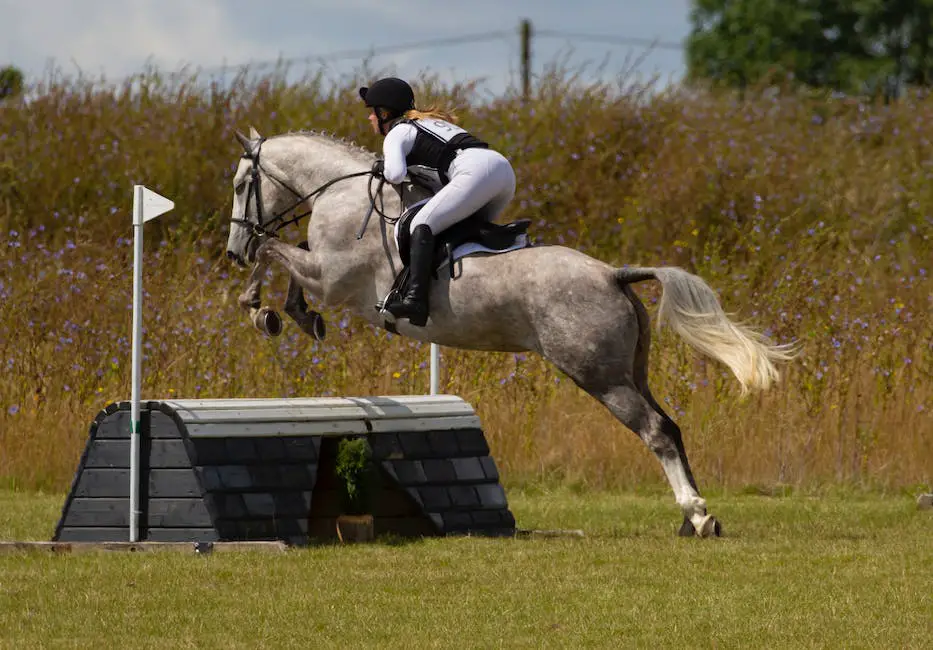
Famous German Equestrian Institutions and Personalities
Germany: The Epitome of Excellence in Equestrianism
Germany’s prominence in the world of equestrian sports is not a recent phenomenon, rather, it has a deep-seated history in excellent horsemanship. The country’s legacy includes an impressive array of esteemed educational institutions related to equestrianism, noteworthy riders, and respected horse breeders and trainers, confirming its status as a global powerhouse in the sport.
German Equestrian Institutions
The German Equestrian Federation (FN) is the largest national equestrian federation in the world and oversees breeding, sports, and personal members. It promotes horse welfare, training standards, and organizes competitions.
Educational institutions such as the German Riding School in Warendorf, the National Stud of Schwaiganger and the Landgestüt Celle play a significant role in shaping German equestrian traditions. The German Riding School, established in 1826, is responsible for the certification of riding and driving instructors and breeding experts nationwide, embodying the longstanding tradition of teaching excellent horsemanship. Schwaiganger and Celle are state-owned studs that have been crucial in developing and preserving the quality of horse breeds in Germany for centuries.
Prominent German Equestrian Personalities
Germany is home to numerous accomplished competitive riders. Isabell Werth is considered one of the most successful dressage riders in the world, having multiple Olympic, World, and European Championship medals to her name. Other renowned German riders include Ludger Beerbaum and Marcus Ehning, both successful show jumpers at a national and international level.
Notable German Breeders and Trainers
Several German horse breeders and trainers have made significant contributions to the equestrian world. Uwe Heckmann, a well-known breeder, has produced numerous top-level show jumpers. Paul Schockemöhle, a former show jumper himself, is now a renowned trainer and breeder, known for his stud farm Lewitz, one of the largest horse breeding operations in Europe.
German Equestrian Traditions and Breeds
German horse breeds like the Hanoverian, Holsteiner, and Trakehner are highly sought after worldwide, showcasing the quality of German breeding strategies. The tradition of the ‘Körung’, or licensing of sires, is a distinctive feature of the German horse breeding tradition.
Equestrian sports, particularly dressage, eventing, and show jumping, are popular in Germany, with prestigious events like CHIO Aachen attracting international attention. The German ‘system’, characterized by its emphasis on the training scale, rider position, and the holistic development of the horse, remains a gold standard in equestrian practices worldwide.
Germany’s equestrian traditions are grounded in a commitment to excellence, a history of successful competitive riders, and a steadfast dedication to preserving and enhancing their horse breeding traditions. As a result, Germany persistently stands as an influential figure in the equestrian world.
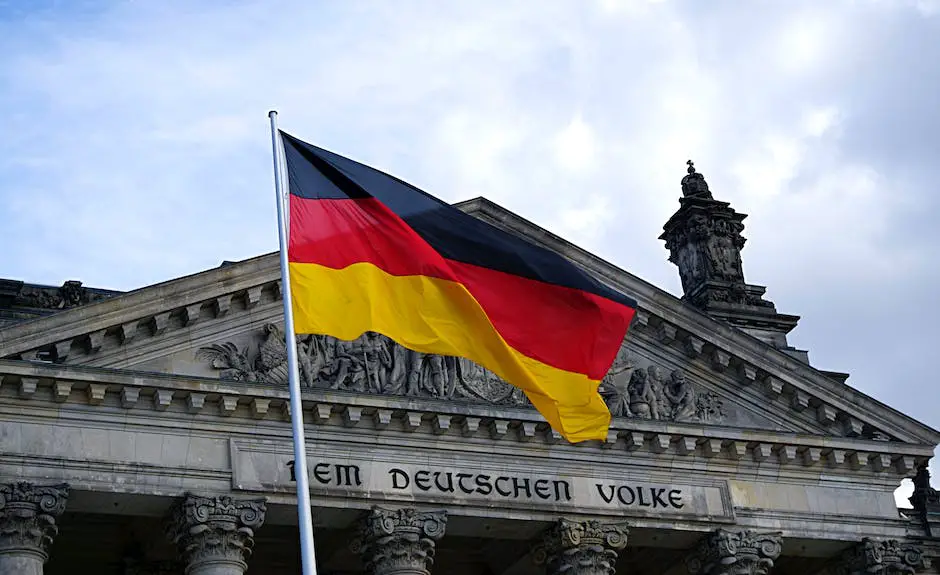
The Future of German Equestrian Traditions
Overview of German Equestrian Traditions Today
Going as far back as the Middle Ages, German equestrian traditions have a notable standing. With time-honored classical riding schools and countless Olympic equestrian distinctions, Germany continues to make waves in this sector. The country’s traditional riding and training approaches, focusing on systemic, comprehensive training and the welfare of horses, are still shaping the global equestrian arena. However, just as any other societal aspect continually evolves, German equestrian traditions are also adapting due to a variety of factors.
Modern Challenges and Trends
One of the major challenges is the urbanisation trend within Germany, with more people moving to cities, leading to a decrease in rural populations where horse-riding is generally more commonplace. This could result in fewer new generations being exposed to the equestrian tradition, and consequently a potential decline in interest and continuation of these traditions.
Additionally, changing societal attitudes towards animal welfare are influencing equestrian practices. Improved understanding of equine behavior and welfare has led to advancements in training methods and horsemanship, moving away from the traditional militaristic, dominance-based training to a more cooperative, partnership-centered approach. This shift is likely to impact the conventional German riding and training techniques.
The Role of Equestrian Sports and Breeding
The future of German equestrian traditions is, in many ways, intertwined with the future of equestrian sport. The country’s continued success in international competitions like the Olympics or World Equestrian Games can play a significant role in maintaining interest in equestrian traditions. Germany’s dynamic breeding industry, which produces world-class sport horses for various disciplines, also bodes well for the future of its equestrian heritage.
Influence of Technological Innovations
Technological innovations in the equestrian field may also affect the evolution of German equestrian traditions. New developments in saddlery, veterinary care, and training equipment can enhance horse welfare and performance, but may also challenge traditional techniques. The use of digital platforms for training, competitions and communication can connect equestrian communities globally, influencing new trends and enabling the exchange of equestrian knowledge and skills.
German Equestrian Traditions: A Resilient Future?
Despite the challenges, it seems unlikely that German equestrian traditions will entirely disappear. Rather, they may transform and adapt to the modern world. The traditions are deeply rooted within German society, and the passion for horses and equestrian sport spans generations. The continual refinement of horse breeding and training methods, reinforced by the commitment to animal welfare, signals a progressive approach that will likely carry German equestrian traditions into the future.
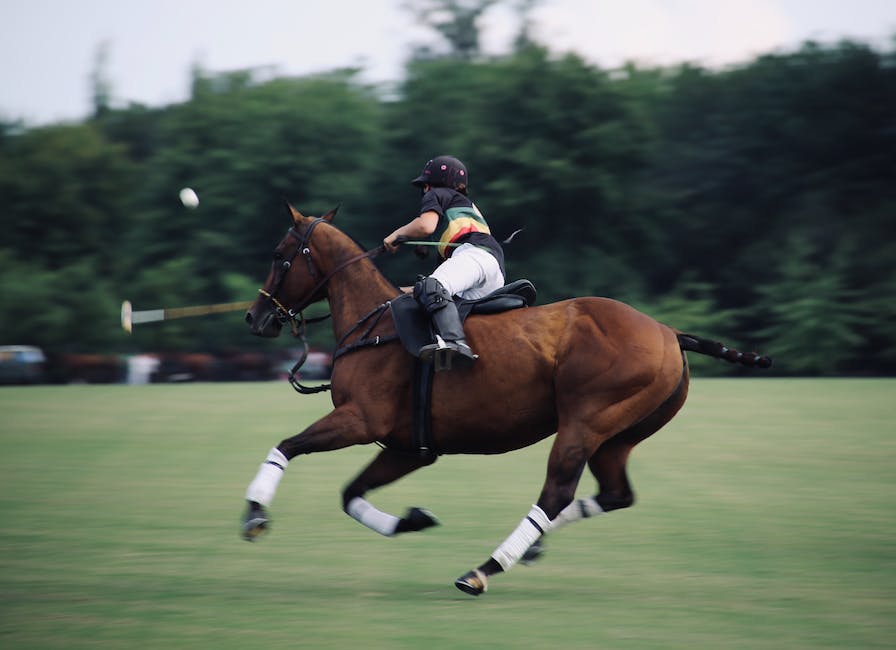
Germany’s equestrian traditions, deeply embedded in society, have withstood the ebbs and flows of change, shaping a thriving modern equestrian world both locally and globally. However, the narrative does not end here. As the world gallops ahead, new challenges and opportunities emerge on the horizon of this vibrant tradition. Yet, the spirit of German equestrianism, synonymous with steadfast discipline, radiant elegance, and everlasting passion, presents a promising future, vibrant with potential. It stands ready for the next leg of the journey, bridling the wind of change and anchoring its roots deeper into the soil of tradition, forever honoring the legacy of its rich heritage with each upcoming hoofbeat.
